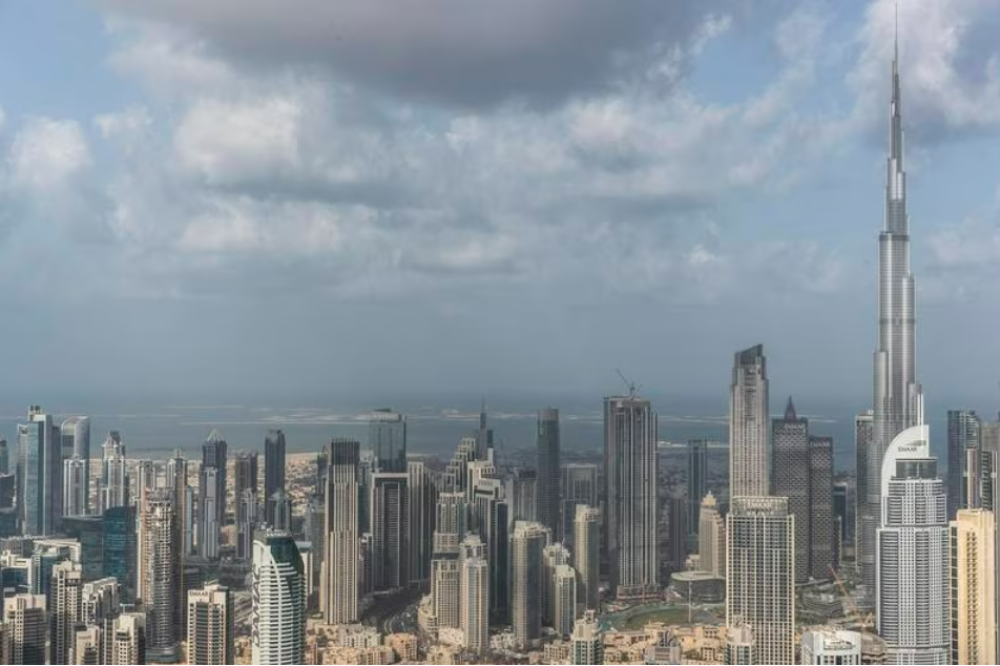UAE economy to expand 4% in 2024 on non-oil sector growth, S&P says


The UAE's economy is expected to expand by 4 per cent in 2024 and 3 per cent this year, driven by strong growth in its non-oil sector, according to a new report.
The rising number of tourist arrivals, supportive government initiatives and increasing tech advancements are expected to spur the country's economic expansion, S&P analysts said.
Key contributors to the country's economic growth in 2024 include wholesale trade, industry, real estate, construction, financial services and tourism, as well as oil and gas, Trevor Cullinan, sovereign ratings analyst at S&P, told state news agency Wam.
The government's economic and social measures implemented over the last two years “are strategically designed to set the stage for sustained, long-term economic expansion”, S&P said.
“The country's ability to host major international events is expected to play a pivotal role in achieving the UAE's ambitious goal of attracting 40 million visitors by 2030, accompanied by plans to expand the number of hotel rooms to 250,000 during the same period.”
The economic growth forecast is in line with projections from the UAE Central Bank, which expects the country's economy to expand by 3.3 per cent this year.
Business activity in the non-oil private sector economy of the UAE remained strong in August, with output and numbers of new orders increasing.
The seasonally adjusted S&P Global purchasing managers’ index reading of the Arab world's second-largest economy softened to 55 in August, from 56 in July. That was well above the neutral 50-point mark that separates growth from contraction.
The year-ahead sentiment among those surveyed reached its highest level since March 2020, as output rose sharply and businesses registered their most rapid reduction in delivery times in more than four years.
The UAE's non-oil sector will be bolstered by inflows of expatriates and tourists, as well as positive sentiment from investors, consumers and the private sector, Mr Cullinan said.
The UAE's tourism sector is expected to continue growing as it hosts major global events such as the Cop28 climate summit in November, Tatiana Lysenko, lead economist for emerging markets at S&P, added.
Abu Dhabi and Dubai will remain at the forefront of attracting business and tourism to the country.
Other emirates such as Ras Al Khaimah and Sharjah are also working to promote their tourism sectors, thereby increasing the diversification of tourism offerings in the country, Ms Lysenko said.
Dubai's real estate sector is also expected to show “greater flexibility” with expectations for housing prices to stabilise in light of strong demand, S&P said.
Prices for apartments in Dubai increased along with those of villas and town houses in August, according to a September report by real estate consultancy ValuStrat.
The market for apartments experienced capital gains of 1.5 per cent monthly and expanded at a record 10 per cent annually, the highest capital growth in a decade, it said.
Dubai’s residential real estate prices rose 17 per cent in the second quarter on an annual basis, marking the 10th consecutive quarter of expansion, amid strong demand and robust economic growth, according to a report by consultancy Knight Frank.
The UAE's banking sector is also expected to remain robust, with profitability improving beyond pre-pandemic levels due to rising interest rates, according to Mohamed Damak, senior director and global head of Islamic finance at S&P.
The capitalisation of UAE banks will remain strong, supported by improved internal capital generation, good financing and liquidity conditions, and a strong net external assets position, which will protect it from the pressures of declining global liquidity and rising costs, Mr Damak said.
Profits of the four largest banks in the UAE grew sharply in the first half of this year, boosted by rising interest rates and the strong growth momentum, Moody’s Investors Service said in an August report.
First Abu Dhabi Bank, Emirates NBD, Abu Dhabi Commercial Bank and Dubai Islamic Bank reported a combined net profit of $7.4 billion, up from $4.4 billion for the same period of 2022, the rating agency said.
Banks in the UAE, like their regional peers, are beneficiaries of higher interest rates amid relatively lower inflation in the oil-rich region.
The rating agency said it expects the UAE banks' bottom-line profitability to increase further this year, underpinned by return on assets improving to 2 per cent during the first six months of the year, well above the 1.3 per cent recorded a year earlier.

Manama – The Ministry of Foreign Affairs of the Kingdom of Bahrain expressed its deep appreciation, in its capacity as the current chair of t…

Muscat – The Sultanate of Oman announced on Tuesday that it is closely following the latest developments in the Republic of Yemen, reiteratin…

Abu Dhabi – The Ministry of Defense of the United Arab Emirates issued a statement on Tuesday, affirming its reference to the Foreign Ministr…